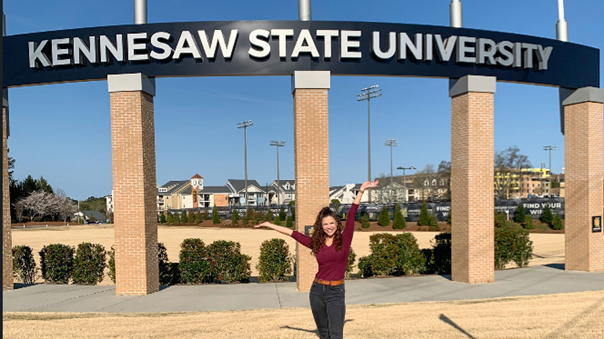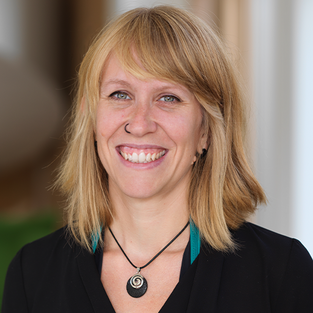How to find a partner school in the USA or Canada for your vocational school

We provide tips for finding a partner school - from researching to making contact. In addition to contact points and research pages, you will find tips on how to approach colleges and what information you should provide.
1. research partner schools
The first step is to research possible partner schools in the U.S. or Canada. Dr. Alexandra Gerstner advises vocational school teachers to search for partners:
"Think bigger right at the beginning of your research for suitable colleges and involve your environment: Are there existing networks you can tap into? Does the location of your vocational school have a twin city? Are there internationally operating companies in your environment (e.g. of your apprentices) with corresponding contacts? Are there local chambers of commerce?
Such contacts can help in the search for a college and, for example, provide financial support later in the exchange project or offer company tours , for example."
Dr. Alexandra Gerstner, head of the personal development program area, ...
These points of contact will help get your research started:
- Check with your city's twinning office - there may be contacts with schools or host families.
- Ask the relevant chambers of commerce abroad, which may be able to arrange contacts with community colleges or technical colleges. For the U.S., these are the German American Chambers (GACC) in Atlanta, Chicago, New York, Philadelphia and San Francisco. In Canada, the Canadian German Chamber of Industry and Commerce (CGCC) represents German companies.
- Use the American Association of Community Colleges (AACC) search engine to find community colleges in the United States.
- For help in finding international partner schools, use the referral platformPartnerschulnetz.de of the KMK and the PAD.
Our offers for partner search
- Join us for our annual virtual transatlantic networking day. You can network with colleges from the U.S. and Canada, get to know German vocational schools with their own networks, and receive tips for your school partnership. Send an e-mail to gate(at)joachim-herz-stiftung(dot)de so that we can inform you about the start of registration. It is anticipated that the next network day will take place in November 2023.
- To facilitate mutual networking, an interactive map(Transatlantic Apprentice & Student Exchange Map) has been set up, where all vocational schools and colleges can register with their contact details and thus signal their interest in a partnership.
- If you wish, we can distribute your school portfolio to our cooperation partner Community Colleges for International Development (CCID) and its 700 or so members (North American accredited colleges).
2. create portfolio of vocational school
Project manager Isabel Dwinger advises vocational schools to be well prepared when making contact with potential partner schools:
"When approaching a partner college, give the contact person something to work with right away: show in a concise one-page portfolio or on an English landing page of your website who your school and your student:s are, what international experience you already have and - most important - what the benefits are for the partner college. You can also have the website translated by your trainees in English class."
Isabel Dwinger has been project manager for the GATE funding program since 2020. The international mobility of trainees is particularly close to her heart: she was able to gain international experience herself during her training and studies.
It's in the portfolio:
- Name, location, focus, areas of excellence / projects of your school
- Number of teachers and students
- Orientation of your school: What is the orientation of your school? Which professions are trained?
- Background on the German vocational training system: Feel free to briefly discuss the dual vocational training system - many colleges are not familiar with it - highlighting its unique international selling point.
- International experience: What previous international projects and experience does your school have?
- Project Key Dates: What kind of exchange program would you like to implement in the future?
- Contact persons: Who are the contact persons of your school?
3. write an appealing request
In the next step, write an inquiry to possible partner schools. In doing so, try to strike the American/Canadian tone. The following tips will help you do this:
- Use active language, i.e., no conditional or passive sentences.
- Write in the first person plural ("We").
- Feel free to write in the superlative and use emotional, positive language - a bit like copywriters:inside.
- Highlight your school's or person's strengths and competencies, and make clear what benefits the potential partner school would gain from the partnership.
- Point out the possibility of receiving funding through the GATE - German Apprenticeship Training Exchange program or other funding sources (e.g., GATE funds can also be used for American/Canadian participants).
4. contact schools
With your prepared request and portfolio, you are now ready to contact colleges. We recommend that you use an - preferably official - email address with .com ( .de often ends up in spam).
Iris Schultz, Program Director in the USA, will tell you who is the best person to contact at a college:
"Look for an International Department/Office on the college's website and find the appropriate contact person there. If possible, connect with the person via social media (e.g. LinkedIn) and get to know each other a bit digitally before you get down to business."
Iris Schultz has been the Joachim Herz Foundation's local representative in Atlanta since 2017. She is very familiar with the American economy and transatlantic cooperation from previous work for American companies and the German Consulate.
Do not be discouraged
Matching with a suitable partner college can sometimes take a long time. Do not let this discourage you. We will be happy to advise you and wish you every success!
Tips as PDF download
You can download the tips for finding partner schools as a PDF file .
Contact
